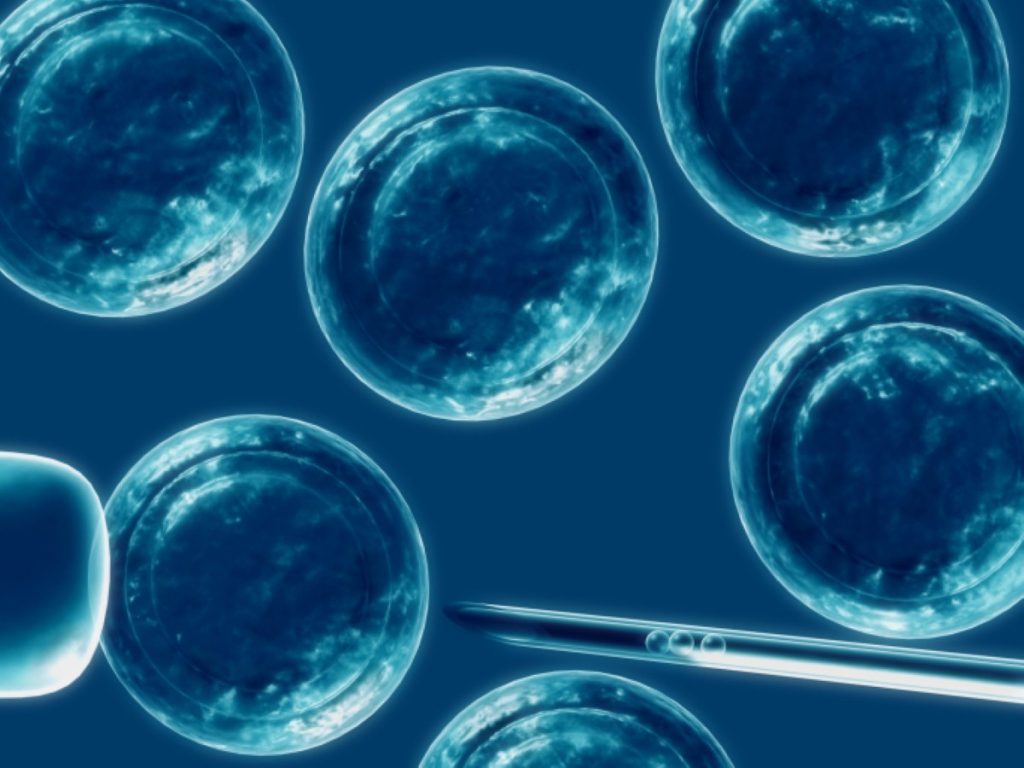Playing God: MPs will defy the science in Tuesday’s genetic modification vote
Britain could become the first country in the world to legalise human genetic modification next week. It's a watershed moment for humanity – but is this a step we want to take?
The government is asking MPs to agree new regulations which will allow scientists at Newcastle University and elsewhere to carry out mitochondrial donations – the practice that will create IVF babies with DNA from three parents.
It's necessary, they argue, to protect the babies who would otherwise be born with mutated mitochondria – the power-producing bits of cells – which can lead to serious diseases that currently affect around one in every 6,500 children.
These diseases are avoidable, but at a cost. The process either takes place before fertilisation with a man's sperm or afterwards. The nucleus from the mother's embryo is removed and substituted into the embryo of the 'third' parent. For pro-life campaigners, this means the destruction of two lives for the creation of another.


Ethical objections are one thing. Scientific concerns about the implications of mixing up DNA like this are quite another. But you shouldn't be worried, ministers claim. There are only 37 genes in mitochondrial DNA, compared to 36,000 in the nucleus. "Mitochondrial donation will give women who carry severe mitochondrial disease the opportunity to have children without passing on devastating genetic disorders," the Department of Health's chief medical officer Professor Dame Sally Davies says. "It will also keep the UK at the forefront of scientific development in this area."
It will do more than that. It will make Britain the first country in human history to legalise germ-line genetic modification. This is a big step. So why has no-one legislated for this yet?
So far the very limited experiments in human genetic modification have raised more questions than answers. Before the US government halted 'cytoplasmic transfer' in 2002 around 30 IVF babies were born by the technique. It's been reported that a private fertility clinic is now urgently investigating the health of 17 of them, now teenagers.
In 2003 a scientist called Zhang carried out his own experiments in mitochondrial donation. The results were an abortion and two stillborn babies.
Those close to the study blame other factors for the deaths. But the Chinese government, somewhat spooked by Zhang's activities, banned any further attempts at the process.
Since then an advisory committee to the US Food and Drug Administration has been studying whether the process is safe, after a Portland researcher said he had conducted the technique successfully on monkeys – and now wanted to begin trying it on humans.
Doing so would be deeply controversial because of the large number of human eggs needed for the research. Writing in 2012, London-based Dr Peter Saunders warned there were "huge ethical issues" involved. "How many debt-laded students or desperate infertile women will be exploited and incentivised by being offered money or free IVF treatment in return for their eggs?" he asked. "How many thousands of human embryos will be destroyed?"
That it will take hard work to refine the technique shouldn't be doubted, but the goal is a worthy one. After all, there isn't a cure for most of the 50 mitochondrial diseases currently known about. There's not much more than supportive treatment available right now for the fatal ones.

Preventing such diseases from taking place is obviously desirable – but at what cost?
It may be that those 37 different genes could affect the personality of the resulting child. That could happen, Nature.com reports, "because the donor cell's cytoplasm could reproduce chemical tags on the nuclear DNA which alter the expression of genes".
German scientists have also warned problems could arise if the DNA from different women prove to be incompatible. Reduced growth, early death, fast ageing, or reduced fertility are all problems that have been spotted in mice, fruit flies and others, they claim. Until the uncertainties this creates are addressed, the science will remain unclear.
No-one can really say with confidence what impact the mitochondrial DNA from a third parent will have. It leaves the government's confidence in the existing evidence somewhat exposed – and is not the first time ministers have looked blindly at the facts staring them in the face.
There is a broader headache, too: the idea that by deciding to actively meddle in humans' make-up we are beginning a process that will eventually lead to custom-made babies. Humanity's desire for survival may make this inevitable, but we should at least be cautious as we take the first step in this direction.
And then there are the children. Without this intervention, many will die unpleasant, premature deaths. They may not be the human beings they would have been if they had had only two parents, but at least they would have a meaningful life.
The UK government, by proposing to legalise genetic changes of this kind before the evidence is clear-cut, has posed backbenchers a very big dilemma. MPs must make their minds up next Tuesday. How they vote could end up being the most important decision they make this parliament. This debate will be a historic one, not just for Britain but for the world.












